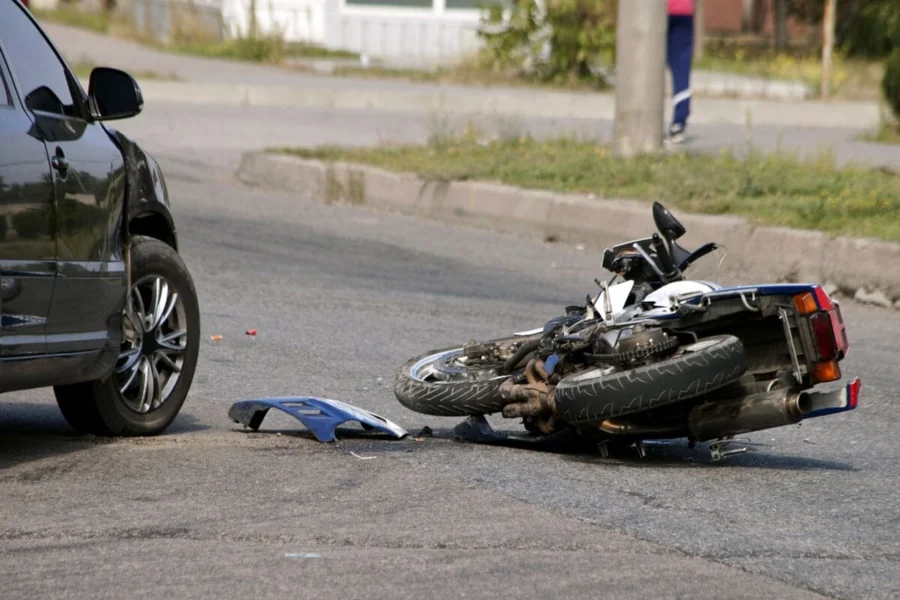Long Island’s extensive network of highways and busy roads, including the Long Island Expressway, Northern State Parkway, and Southern State Parkway, sees thousands of motorcycle accidents each year. According to the New York State Department of Motor Vehicles, Nassau and Suffolk counties combined report over 1,200+ motorcycle crashes annually, with many resulting in serious injuries due to the vulnerability of riders compared to passenger vehicle occupants. The region’s high traffic volume, particularly during summer months when motorcycle usage peaks, contributes to the significant number of accidents requiring legal intervention.
Understanding what types of compensation may be available can provide some peace of mind as you recover from injuries sustained in a motorcycle crash. If you’ve been injured in a motorcycle accident on Long Island, consulting with an experienced Motorcycle Accident Lawyer can help you understand your rights and pursue the compensation you deserve for your injuries and losses.
Medical Expenses
Medical bills are usually one of the largest concerns after a motorcycle accident. This coverage may include hospital stays, surgeries, doctor visits, physical therapy, and other medical services. If you are going to need future medical treatment, compensation can also include those anticipated costs. Documentation of every medical visit and treatment related to the injury is necessary to prove a claim.
Lost Wages
Injuries that cause time off work can create financial pressure. Compensation for lost wages is meant to offset this burden. It includes the wages you would have otherwise earned if the accident had never happened. This can include not only regular salary but also bonuses and other income sources. When injuries cause permanent impairment, compensation may even reflect future earning potential losses.
Pain and Suffering
Motorcycle accidents are not just about monetary losses—they also inflict significant physical pain and emotional trauma. According to the Insurance Information Institute, both physical injury and the emotional toll are factors considered in pain and suffering compensation. This type of compensation requires subjective evidence and can involve extensive documentation, including medical records, personal testimony, and written accounts of how the accident has affected daily life.
Property Damage
Compensation can also extend to motorcycles and personal property damaged in the crash. This applies to costs incurred to repair or replace the motorcycle, as well as damaged gear such as helmets and protective clothing. Evidence of the bike’s value and repair estimates will help support property damage compensation claims.
Loss of Enjoyment of Life
Motorcycle crash injuries can dramatically change your quality of life. Compensation for loss of enjoyment focuses on how injuries may prevent a person from participating in activities they enjoyed before the injury. This form of compensation can be pursued by documenting changes in lifestyle and activities that are no longer possible due to the injuries sustained.
Disability and Disfigurement
Some injuries may result in permanent disability or disfigurement. These outcomes account for the long-term effects on a person’s life, and compensation of this nature can be substantial. This includes essential home modifications, specialized equipment, and workplace accommodations. In these situations, medical evaluations are usually conducted to help determine the extent of disability or disfigurement.
Emotional Distress
Motorcycle crashes can lead to serious mental health issues. Compensation for emotional distress takes into account psychological problems that may develop as a result, including anxiety, depression, or PTSD. This compensation usually covers costs for counseling or therapy. It is essential to document psychological symptoms and treatments to support such claims.
Loss of Consortium
Serious injuries can also impact relationships with family members. Loss of consortium is compensation for the loss of marital relations, companionship, and support. Such claims are usually filed by the spouse or family members of the injured victim, and evidence of the impact on family relationships must be demonstrated.
Future Care Needs
Severe motorcycle accidents may result in lifelong care requirements. Compensation can include costs for ongoing medical care, rehabilitation services, assistive devices, and home modifications. Medical experts often provide testimony about future care needs and associated costs to ensure adequate compensation for long-term requirements.
Legal Fees
Most of the time, legal representation is needed to pursue a compensation claim effectively. Attorneys are often necessary for insurance negotiations and personal injury cases. Legal fees may be included in the settlement or award so that obtaining justice does not come at an additional financial burden to the injured party.
Conclusion
Understanding potential avenues for compensation can help a person focus on recovery after a motorcycle accident. Compensation varies by case, and the available compensation depends on the specific circumstances and severity of the incident. Consulting with qualified professionals, including legal and medical experts, can help any victim better understand their needs and receive appropriate support during their recovery journey.

